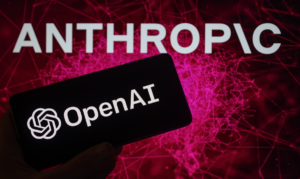Politeness Towards ChatGPT Results in Significant Costs for OpenAI

The Energy Cost of Politeness in AI Interactions
Understanding Politeness in AI Conversations
There’s a belief that being polite to AI chatbots like OpenAI’s ChatGPT leads to better responses. However, the recent debate has raised questions about whether this politeness might be a waste of energy. A user on social media recently highlighted how saying "please" and "thank you" could impact the carbon footprint and operational costs associated with AI technology. In response, OpenAI’s CEO, Sam Altman, acknowledged the significant expenses that come with running these AI systems. He stated that it costs the company millions of dollars, yet he still believes the investment is worthwhile.
The Financial Implications
OpenAI is not completely clear about the operational costs of ChatGPT, but it continues to receive substantial investments, amounting to billions of dollars. Earlier this year, Altman revealed that even the Pro subscription service, which costs users $200 a month, is not profitable. He has expressed concerns about limitations in GPU availability and is reportedly planning a substantial investment in chip manufacturing to alleviate these constraints.
The Growing Energy Demands of AI
As AI technology evolves, so does its energy consumption. According to the U.S. Department of Energy, data centers currently account for about 4.4% of the nation’s electricity usage, with expectations that this figure could reach 12% by 2028. Furthermore, the International Energy Agency predicts that the energy consumption of global data centers will more than double by 2030, largely fueled by the increasing demands of AI technology. In fact, AI could soon consume as much electricity as the entire nation of Japan.
The Environmental Consequences
With rising energy usage comes an increase in greenhouse gas emissions. Companies like Microsoft and Google have acknowledged that their carbon footprints are growing as they expand AI capabilities, despite previous commitments to reduce emissions. For instance, Microsoft is contemplating introducing more natural gas power plants to meet its energy needs. Additionally, the water consumption for AI processing in the U.S. ranges from 300,000 to 4 million gallons daily, a figure that may continue to rise as the demands for AI processing increase.
The Ethics of Politeness in AI Interactions
A quick online search reveals numerous articles suggesting that users should be polite when interacting with AI chatbots. Microsoft even emphasizes that while AI does not express appreciation, using courteous language can lead to better and more respectful outputs. Understanding this relationship, some researchers have found that the nature of user inputs—whether polite or rude—can significantly impact the quality of responses from AI models. For example, studies have shown that rude behavior may elicit less useful or collaborative answers, and AI can even adapt its responses based on narratives that convey human emotions, such as stress and anxiety.
Finding the Balance
So, while it seems that polite interactions might enhance AI performance, it’s also necessary to consider the broader ecological impact of our engagement with these technologies. Being more casual—or even terse—when communicating with AI might save both financial and environmental resources, leading to a more sustainable interaction model. However, this standoffish approach may also sacrifice some of the performance benefits that come from being polite, thus putting users in a dilemma.
Ultimately, the rising energy consumption and financial costs associated with AI technology cannot be ignored, prompting users to weigh the benefits of politeness against the environmental and economic repercussions.






